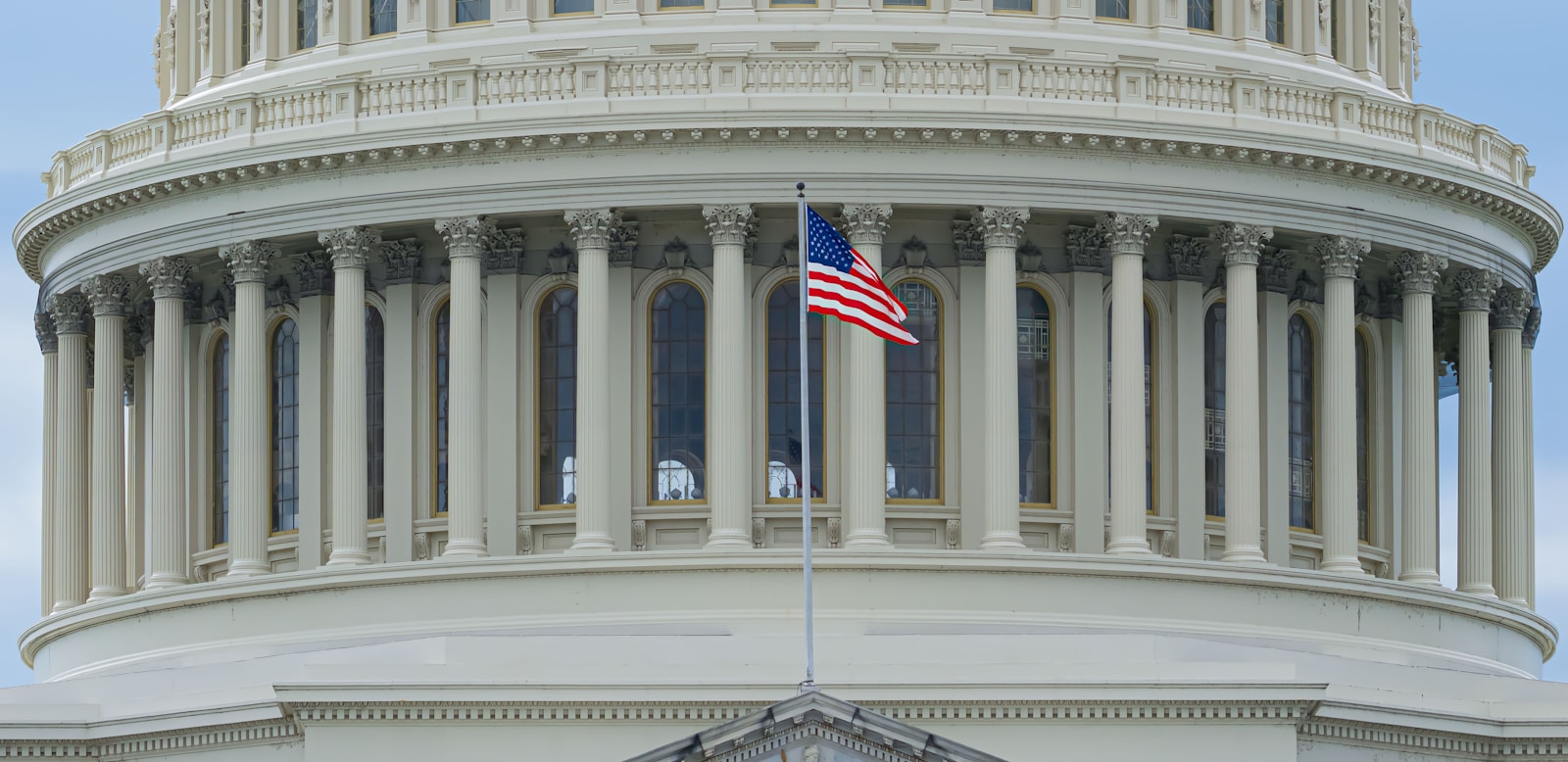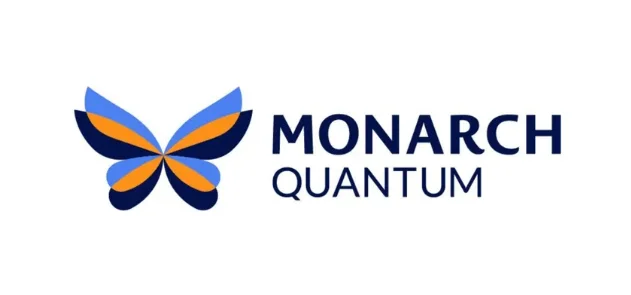Guest Post by Matt Cimaglia Founder and Managing Partner of Quantum Coast Capital and Paul Stimers, attorney and a member of Holland & Knight’s Public Policy & Regulation Group
In December 2018, the United States took a pioneering step into the burgeoning quantum industry with the enactment of the National Quantum Initiative Act (NQIA). This legislation set the stage for a structured national effort that could, in theory, cement the country as a lead in quantum knowledge, accelerating the development of quantum information science and technology domestically.
However, in the six years since the NQIA was enacted, rapid advancements in the field have highlighted the need for an updated approach—one that not only keeps pace with technological developments, but also addresses emerging needs within the quantum ecosystem, including moving from basic research to applications.
The Birth of a Quantum Framework

The NQIA was the first of its kind, acknowledging the strategic importance of quantum technology. Its primary objectives included establishing a unified federal quantum research strategy, creating research centers and educational programs, and fostering public-private partnerships. The act allocated more than $1.2 billion in funding over five years—a sum that seemed substantial at the time.
However, as the quantum landscape evolved, it became clear that the scope and scale of the NQIA would likely be insufficient. The global race to quantum supremacy is intensifying, and other countries are pouring significantly more resources into their quantum programs, leaving the U.S. at risk of falling behind. Recognizing these challenges, Congress is expected to vote on renewing the NQIA this year, which presents an opportunity to realign the U.S. strategy with the current and future demands of the quantum era.

Falling Behind: A Funding Gap in the Quantum Ecosystem
Despite the foresight demonstrated by the NQIA, the U.S. is currently trailing behind China and the European Union in quantum investments. China leads the global effort, having committed $15.3 billion to quantum technology development, while the European Union has allocated $7.2 billion. In comparison, the United States committed an additional $1.8 billion in 2022, but its overall public investment still lags significantly behind these competitors.
While the U.S. shows strong growth in private investments—driven by venture capital and industry support—it remains at a disadvantage in terms of public funding. This gap in funding is critical because quantum technology holds the potential to transform various sectors, including defense, healthcare, and finance. Without increased support, the U.S. risks not only falling behind in research but also delaying the commercialization of quantum technologies that could yield substantial economic and strategic benefits. Furthermore, this shortfall could have serious national security implications, as quantum advancements are poised to redefine technological leadership.
Moving Beyond the Current Framework
While the NQIA laid a solid foundation, there is a pressing need to evolve beyond its initial framework. Quantum computing has advanced to the stage where mere theoretical research is no longer sufficient. The focus must now shift toward practical implementation, scaling existing hardware resources and developing robust software applications that can leverage quantum hardware.
One of the most crucial areas of focus should be on error correction. Quantum computers are notoriously error-prone due to the fragile nature of qubits. Improving error-correction methods is essential to making quantum computing practical and reliable for real-world applications. Increased funding and support for startups and companies specializing in quantum error correction could accelerate breakthroughs in this field.
Additionally, we must support American companies working on developing quantum software applications. The real-world impact of quantum computing will only be realized when we can apply quantum solutions to complex problems in industries such as pharmaceuticals, where quantum simulations could drastically reduce drug development times, or in finance, where quantum algorithms could optimize portfolio management in ways that classical computers cannot.
Finally, federal agencies should be authorized and funded to acquire quantum computers or quantum computing time, and encouraged to explore ways that quantum computing could help them meet their missions. This will advance federal capabilities and send a strong demand signal to the private sector, unlocking substantial additional investment beyond taxpayer funding.

Capturing Value in the Global Economy
Quantum technology has the potential to capture significant value in the global economy. A report from McKinsey estimates that, by 2035, the entire quantum market—including computing, security, sensing and more—could generate up to $2 trillion in value worldwide. To seize this opportunity, the U.S. must accelerate its efforts in developing quantum technologies, not just for national security and scientific advancement, but also to maintain economic competitiveness.
Time for Quantum Systems to Lead Research
The journey from researching quantum possibilities to using quantum systems for research marks a significant milestone in the evolution of this technology. As quantum computers begin to demonstrate capabilities that surpass classical computers in specific tasks, we are on the cusp of breakthroughs that could redefine industries and research paradigms. It’s time for a strategic shift from exploring quantum potential to harnessing it in practical, scalable ways. The focus must be on enabling and empowering quantum systems to be the bedrock of future research and development.
The National Quantum Initiative Act was a critical first step, but the rapid pace of quantum advancements has since demanded a re-evaluation and expansion of that original strategy. With the act up for review and renewal in Congress this year, now is the critical time to redefine our approach to quantum technology. The CHIPS Act, with its $52-billion investment, marked a significant step in securing the U.S. semiconductor supply chain, incentivizing domestic manufacturing and advancing emerging technologies like quantum computing—but it’s just the beginning of what needs to be a sustained, strategic effort in technology leadership.
To lead in the global quantum race, the U.S. must increase funding, focus on practical applications and prioritize scaling quantum technologies. The era of research is over. We now stand at the threshold of a new era, when quantum systems will define our research, unleashing possibilities never before imagined.
Matt Cimaglia is the Founder and Managing Partner of Quantum Coast Capital, a firm dedicated to pioneering investments in the rapidly advancing field of quantum computing. With a track record of successfully founding and scaling tech startups, Mr. Cimaglia is at the forefront of the quantum revolution, focusing on how this technology will transform various industries. His leadership in creating Alteon.io—a groundbreaking SaaS platform for content management—highlights his ability to drive innovation and adapt to market demands.
Passionate about making complex technologies accessible, Mr. Cimaglia is committed to demystifying quantum computing for a broader audience. He believes in the transformative potential of quantum technology and is focused on helping businesses and investors understand its impact and opportunities. By bridging the gap between cutting-edge innovation and practical applications, Mr. Cimaglia is not only shaping the future of technology but also making it understandable and actionable for a wide range of industries.
Paul Stimers is a Washington, D.C., attorney and a member of Holland & Knight’s Public Policy & Regulation Group. Mr. Stimers focuses his policy advocacy efforts on matters related to emerging technologies such as quantum technology, commercial spaceflight, and artificial intelligence, and advises a wide range of companies and industry associations in pursuing legislation and representing their interests before Congress and federal agencies. Mr. Stimers founded and leads the Quantum Industry Coalition, a group of quantum computing, communications and cryptography companies working to advance U.S. quantum leadership. He works with software companies and industry associations to ensure data and network security without restricting technological development. He holds a B.A. from the University of Washington, a J.D. from Harvard Law School, and an M.P.A. from Harvard’s Kennedy School of Government. Views expressed in this article are not necessarily those of the Quantum Industry Coalition, Holland & Knight, or its clients.















